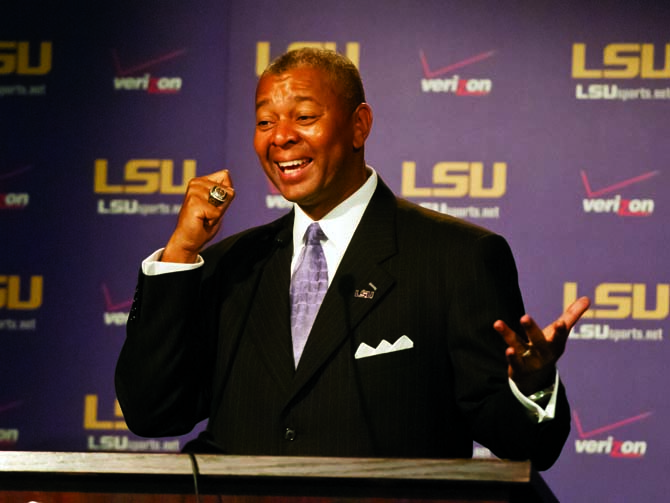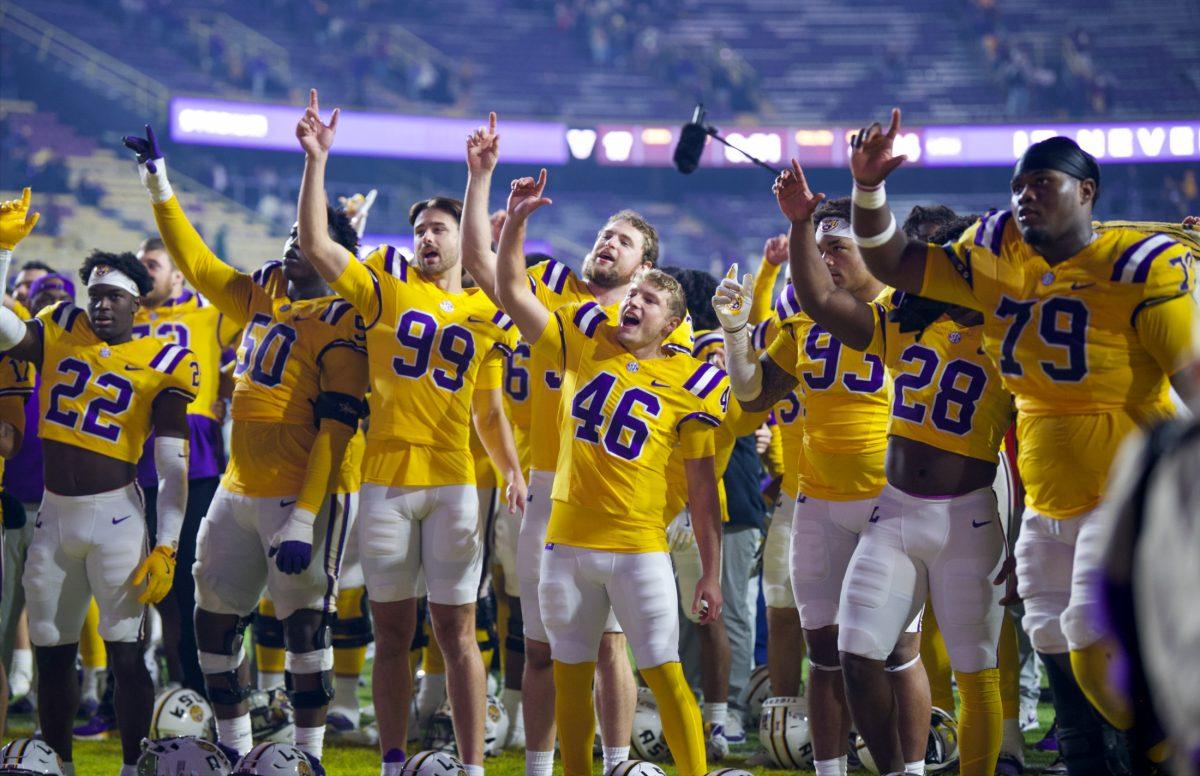The 2006 Final Four is a distant memory for LSU men’s basketball fans.
Local products like Tyrus Thomas, Brandon Bass and Glen “Big Baby” Davis littered the Tigers’ 2006 roster. The PMAC was a venue opposing foes wanted to avoid. Coach John Brady and his brand “Brady Ball” made LSU relevant in college basketball for the first time since Shaquille O’Neal was on the team.
The 2012 Tigers are a completely different picture.
Last season’s coach Trent Johnson bolted to TCU and center Justin Hamilton shocked everyone by declaring for the NBA Draft. Not only was the PMAC barely half-filled for games, but the Tigers notched only one road win in Southeastern Conference play in 2012.
An infusion of new blood was necessary for a team that wasn’t gaining any traction.
The inability to recruit Louisiana, having players transferring to other schools and the lack of offensive creativity led to the Trent Johnson era of LSU men’s basketball — one fans hope to soon forget.
Insert the man tasked with turning the program around: new coach Johnny Jones.
Hiring Jones is the closest LSU has been to the Final Four since 2006. He was a part of two Final Fours — once as a player in 1981 and as an assistant coach under legendary LSU coach Dale Brown in 1986.
LSU’s head coach position isn’t just another job Jones wants to put on his résumé. It’s the only job for him.
“This is certainly a dream come true to return to a place that has so many memories for me,” Jones said in a statement after being named the Tigers’ head coach April 15, 2012.
That sounds like a coach who is in for the long haul.
Despite being at North Texas for the last 11 seasons, Baton Rouge has always been Jones’ home. He has spent more than 15 years of his life in the Red Stick.
With all the headway he and his staff have made in just a short time, it’s clear he’s the man for the job.
From day one, Jones has hit the recruiting trail hard. He had to after Johnson left the cupboard in the 2012 recruiting class bare. The lone commitment was sharp-shooting guard Malik Morgan.
In a span of seven months, Jones reeled in nine players who will wear purple and gold the next two seasons.
Within 10 days of being hired, Jones got forwards Shavon Coleman and Shane Hammink to jump aboard. He rounded out the 2012 recruiting class with point guard Corban Collins in June and former University of New Orleans and Memphis guard Charles Carmouche in August.
The 2014 recruiting class now has five verbal commitments, including top-100 prospects Jordan Mickey and Tim Quarterman.
It’s not necessarily the most glamorous recruiting class, but it’s a good start nonetheless. Who knows if Johnson would have been able to round up any players other than Morgan to come to a program that hasn’t been relevant in the SEC since 2008.
LSU returns barely any size in the front court other than 6-foot-9 Johnny O’Bryant III and lost its best wing scorer with the transfer of Ralston Turner to North Carolina State.
The football team may have more wins than Jones’ initial squad.
There’s only one way for the LSU basketball program to go after four years of Johnson’s regime: up. Today’s LSU Basketball Media Day will reveal more of the new direction Jones has in store for the Tigers.
The season opener is still a few weeks away, but it’s hard not to think optimistically about the future of LSU men’s basketball with Jones at the helm.






